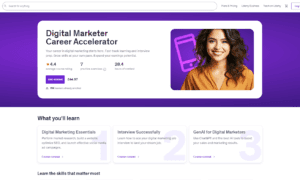In the ever-evolving digital landscape, content marketing services have emerged as a critical component for businesses aiming to establish a robust online presence. Effective content marketing not only drives traffic but also builds brand authority, engages audiences, and ultimately drives conversions. In this comprehensive guide, we will delve into the various aspects of content marketing services, exploring their benefits, strategies, and how they can transform your business.
What are Content Marketing Services?
Content marketing services encompass a range of strategies and activities designed to create, distribute, and manage content that attracts and engages a target audience. These services are tailored to meet the unique needs of businesses, helping them to communicate their brand message effectively and achieve their marketing goals.
Key Components of Content Marketing Services
- Content Strategy Development
A successful content marketing campaign begins with a well-defined content strategy. This involves understanding your target audience, identifying their needs and preferences, and mapping out a plan to deliver relevant content that resonates with them. A robust content strategy aligns with your business objectives and lays the foundation for all subsequent content marketing activities.
- Content Creation
Content creation is the cornerstone of any content marketing service. This involves producing high-quality, valuable content that addresses the interests and pain points of your audience. Content can take various forms, including:
- Blog Posts: Informative and engaging articles that provide value to readers and help establish your authority in your niche.
- Videos: Visual content that can explain complex concepts, showcase products, or share customer testimonials.
- Infographics: Visually appealing graphics that present information in a concise and easy-to-understand format.
- eBooks and Whitepapers: In-depth guides and reports that offer comprehensive insights into specific topics.
- Social Media Posts: Short and engaging updates that keep your audience informed and engaged across social platforms.
- Content Optimization
Content optimization ensures that your content is discoverable by search engines and resonates with your audience. This involves using SEO (Search Engine Optimization) techniques such as keyword research, meta tags, and internal linking to improve the visibility of your content. Optimized content ranks higher in search engine results, driving more organic traffic to your website.
- Content Distribution
Creating great content is only half the battle; you also need to ensure it reaches your target audience. Content distribution involves sharing your content across various channels, including your website, social media platforms, email newsletters, and third-party websites. Effective distribution strategies maximize the reach and impact of your content.
- Content Management
Effective content management involves organizing, storing, and maintaining your content to ensure it remains relevant and accessible. This includes updating outdated content, managing a content calendar, and using content management systems (CMS) to streamline the process.
- Analytics and Reporting
To measure the success of your content marketing efforts, it’s crucial to track key metrics and analyze the performance of your content. Analytics and reporting provide insights into what’s working and what’s not, allowing you to make data-driven decisions and refine your strategy for better results.
Benefits of Content Marketing Services
- Increased Brand Awareness
By consistently producing and sharing valuable content, you can increase your brand’s visibility and establish a strong online presence. Quality content attracts attention, encourages sharing, and helps your brand reach a wider audience.
- Improved Search Engine Rankings
Optimized content ranks higher in search engine results, driving more organic traffic to your website. Higher rankings also enhance your brand’s credibility and authority in your industry.
- Enhanced Audience Engagement
Engaging content keeps your audience interested and encourages interaction. This can lead to stronger relationships with your customers, increased loyalty, and higher conversion rates.
- Lead Generation and Conversion
Content marketing is an effective tool for generating leads and driving conversions. By providing valuable information, you can guide prospects through the buyer’s journey and convert them into loyal customers.
- Cost-Effective Marketing
Compared to traditional advertising, content marketing is cost-effective and delivers long-term results. Quality content continues to attract traffic and generate leads long after it’s been published.
Implementing a Successful Content Marketing Strategy
- Define Your Goals
Start by clearly defining your content marketing goals. Whether you aim to increase brand awareness, drive traffic, generate leads, or boost conversions, having specific goals will guide your strategy and measure success.
- Understand Your Audience
Conduct thorough research to understand your target audience’s needs, preferences, and behaviors. Create buyer personas to represent your ideal customers and tailor your content to address their pain points and interests.
- Develop a Content Plan
Outline a content plan that includes the types of content you will create, topics you will cover, and channels you will use for distribution. A well-structured plan ensures consistency and keeps your content marketing efforts on track.
- Create High-Quality Content
Focus on creating content that is informative, engaging, and valuable to your audience. Use a mix of content formats to cater to different preferences and keep your audience interested.
- Optimize for SEO
Incorporate SEO best practices into your content creation process. Conduct keyword research to identify relevant terms and phrases, use them strategically in your content, and ensure your content is easily discoverable by search engines.
- Promote Your Content
Use various channels to promote your content and reach a broader audience. Share your content on social media, include it in email newsletters, and collaborate with influencers and industry partners to extend your reach.
- Monitor and Analyze Performance
Track key performance metrics such as website traffic, engagement rates, and conversion rates to assess the effectiveness of your content marketing efforts. Use this data to make informed decisions and refine your strategy for continuous improvement.
FAQs about Content Marketing Services
What are content marketing services?
Content marketing services encompass the creation, distribution, and management of content to attract and engage a target audience. These services help businesses communicate their brand message and achieve their marketing goals.
Why is content marketing important?
Content marketing is important because it helps businesses build brand awareness, improve search engine rankings, engage audiences, generate leads, and drive conversions. It is a cost-effective marketing strategy that delivers long-term results.
What types of content are included in content marketing services?
Content marketing services can include various types of content such as blog posts, videos, infographics, eBooks, whitepapers, and social media posts. Each type of content serves a specific purpose and caters to different audience preferences.
How does SEO impact content marketing?
SEO (Search Engine Optimization) is crucial for content marketing as it ensures your content is discoverable by search engines. Optimized content ranks higher in search results, driving more organic traffic to your website and increasing your content’s reach.
What metrics should I track to measure content marketing success?
Key metrics to track include website traffic, engagement rates (such as likes, shares, and comments), lead generation, conversion rates, and search engine rankings. These metrics provide insights into the effectiveness of your content marketing efforts.
How can I improve my content marketing strategy?
To improve your content marketing strategy, focus on creating high-quality content, optimizing for SEO, promoting your content through various channels, and continuously monitoring and analyzing performance metrics to make data-driven decisions.
Conclusion
Content marketing services are essential for businesses looking to build a strong online presence, engage their audience, and drive conversions. By understanding the key components and benefits of content marketing, and implementing a strategic approach, you can achieve significant growth and success in the digital landscape.



































